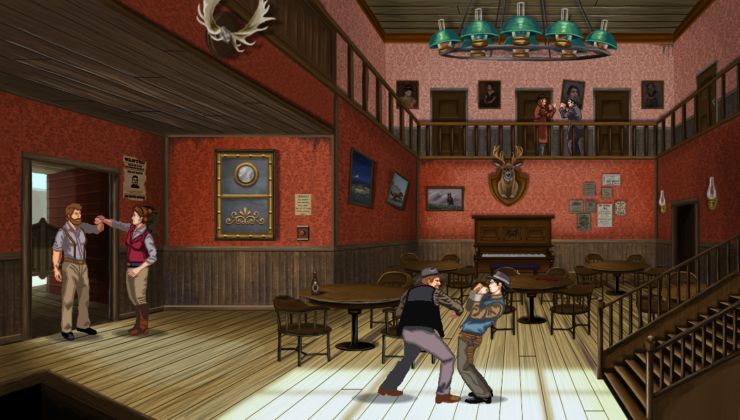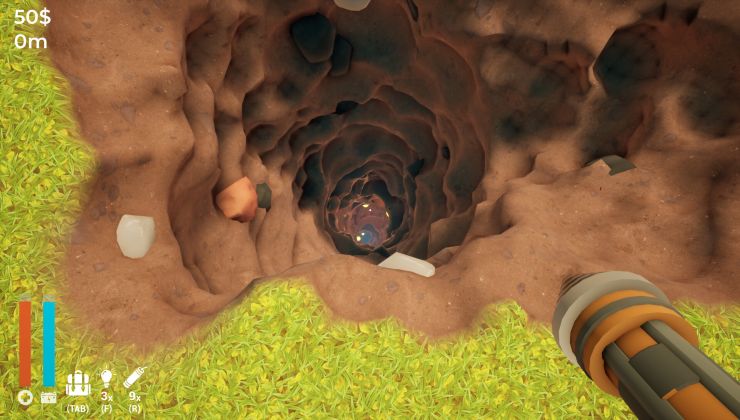ChimeraOS (originally GamerOS) is a big-screen Linux gaming experience designed for couch gaming (think like SteamOS) and there's a brand new release available.
While the current SteamOS is quite old and we're waiting on SteamOS 3 being released, this is the next best thing. In many ways it's a lot more than just booting into Steam Big Picture mode as it brings its own enhancements to work with other stores like Epic, GOG and more.
ChimeraOS 26 brings with it Linux Kernel 5.14.2, Mesa 21.2.1, NVIDIA 470.63.01, RetroArch 1.9.9 and other assorted system upgrades. On top of that it also renames Steam Buddy, the web-based tool for installing non-Steam software to Chimera. Additionally it adds a workaround for game windows not gaining focus with latest Steam client, adds support for 16:10 screen resolutions and gained the ability to push new Proton GE versions without a new ChimeraOS release.
There's also these bug fixes:
- fixed missing text in PSP games
- fixed GameCube games crashing with AMD GPUs
- fixed Epic Games Store login failure
- fixed regression with pairing Bluetooth devices
See more on the ChimeraOS website.
I'm a huge fan of what ChimeraOS (nee GamerOS) is doing (even if I'm not an actual COS user) and I see it as another example of the power of Open Source software in action. SteamOS was rushed out undercooked and then abandoned by Valve relatively quickly, and ChimeraOS stepped in, dusted it off, and set about bringing it up-to-date and even expanding functionality beyond anything Valve would have done.I don't know if they abandoned it as much as (at least one) of the developers decided he hated Debian's build methods and started looking for a replacement. From some points of view, it does make more sense to run with a rolling release for a game console OS. But for the most part the game console operating systems have been some form of BSD (except xbox, which basically uses Windows from my understanding). Valve made (in my mind) a smarter move and based it on Linux so others could maintain the parts they don't care about :)
So I offer a hearty skål! to ChimeraOS and its makers.
I'm a huge fan of what ChimeraOS (nee GamerOS) is doing (even if I'm not an actual COS user) and I see it as another example of the power of Open Source software in action. SteamOS was rushed out undercooked and then abandoned by Valve relatively quickly, and ChimeraOS stepped in, dusted it off, and set about bringing it up-to-date and even expanding functionality beyond anything Valve would have done.
So I offer a hearty skål! to ChimeraOS and its makers.
I don't know if they abandoned it as much as (at least one) of the developers decided he hated Debian's build methods and started looking for a replacement. From some points of view, it does make more sense to run with a rolling release for a game console OS. But for the most part the game console operating systems have been some form of BSD (except xbox, which basically uses Windows from my understanding). Valve made (in my mind) a smarter move and based it on Linux so others could maintain the parts they don't care about :)
If I'm honest, I can't speak to the difficulties of using Debian or BSD or Arch as a basis for SteamOS, but on the face of it, yes, I imagine a rolling release like Arch would be more amenable to dedicated Linux devs updating things with minimal breakage. Do I remember correctly that Debian was chosen for its oft praised stability?
I'll stick with saying SteamOS was abandoned, like a rusting car parked in a field, barely visible among tall grass and brambles, home to nesting mice and wasps, started every so often to keep its engine from seizing up entirely. ;)
Last edited by Nanobang on 17 Sep 2021 at 3:50 pm UTC
Ha, I'm betting if you took the last version of SteamOS and changed the repositories to Debian Buster and then Bullseye it'd update just fine and still work. I may try that if I get bored enough.I'm a huge fan of what ChimeraOS (nee GamerOS) is doing (even if I'm not an actual COS user) and I see it as another example of the power of Open Source software in action. SteamOS was rushed out undercooked and then abandoned by Valve relatively quickly, and ChimeraOS stepped in, dusted it off, and set about bringing it up-to-date and even expanding functionality beyond anything Valve would have done.
So I offer a hearty skål! to ChimeraOS and its makers.
I don't know if they abandoned it as much as (at least one) of the developers decided he hated Debian's build methods and started looking for a replacement. From some points of view, it does make more sense to run with a rolling release for a game console OS. But for the most part the game console operating systems have been some form of BSD (except xbox, which basically uses Windows from my understanding). Valve made (in my mind) a smarter move and based it on Linux so others could maintain the parts they don't care about :)
If I'm honest, I can't speak to the difficulties of using Debian or BSD or Arch as a basis for SteamOS, but on the face of it, yes, I imagine a rolling release like Arch would be more amenable to dedicated Linux devs updating things with minimal breakage. Do I remember correctly that Debian was chosen for its oft praised stability?
I'll stick with saying SteamOS was abandoned, like a rusting car parked in a field, barely visible among tall grass and brambles, home to nesting mice and wasps, started every so often to keep its engine from seizing up entirely. ;)
Ha, I'm betting if you took the last version of SteamOS and changed the repositories to Debian Buster and then Bullseye it'd update just fine and still work. I may try that if I get bored enough.I'm a huge fan of what ChimeraOS (nee GamerOS) is doing (even if I'm not an actual COS user) and I see it as another example of the power of Open Source software in action. SteamOS was rushed out undercooked and then abandoned by Valve relatively quickly, and ChimeraOS stepped in, dusted it off, and set about bringing it up-to-date and even expanding functionality beyond anything Valve would have done.
So I offer a hearty skål! to ChimeraOS and its makers.
I don't know if they abandoned it as much as (at least one) of the developers decided he hated Debian's build methods and started looking for a replacement. From some points of view, it does make more sense to run with a rolling release for a game console OS. But for the most part the game console operating systems have been some form of BSD (except xbox, which basically uses Windows from my understanding). Valve made (in my mind) a smarter move and based it on Linux so others could maintain the parts they don't care about :)
If I'm honest, I can't speak to the difficulties of using Debian or BSD or Arch as a basis for SteamOS, but on the face of it, yes, I imagine a rolling release like Arch would be more amenable to dedicated Linux devs updating things with minimal breakage. Do I remember correctly that Debian was chosen for its oft praised stability?
I'll stick with saying SteamOS was abandoned, like a rusting car parked in a field, barely visible among tall grass and brambles, home to nesting mice and wasps, started every so often to keep its engine from seizing up entirely. ;)
Oooooo, that sounds like a cool experiment! Here's hoping you get bored enough soon! XD






 How to set, change and reset your SteamOS / Steam Deck desktop sudo password
How to set, change and reset your SteamOS / Steam Deck desktop sudo password How to set up Decky Loader on Steam Deck / SteamOS for easy plugins
How to set up Decky Loader on Steam Deck / SteamOS for easy plugins
See more from me